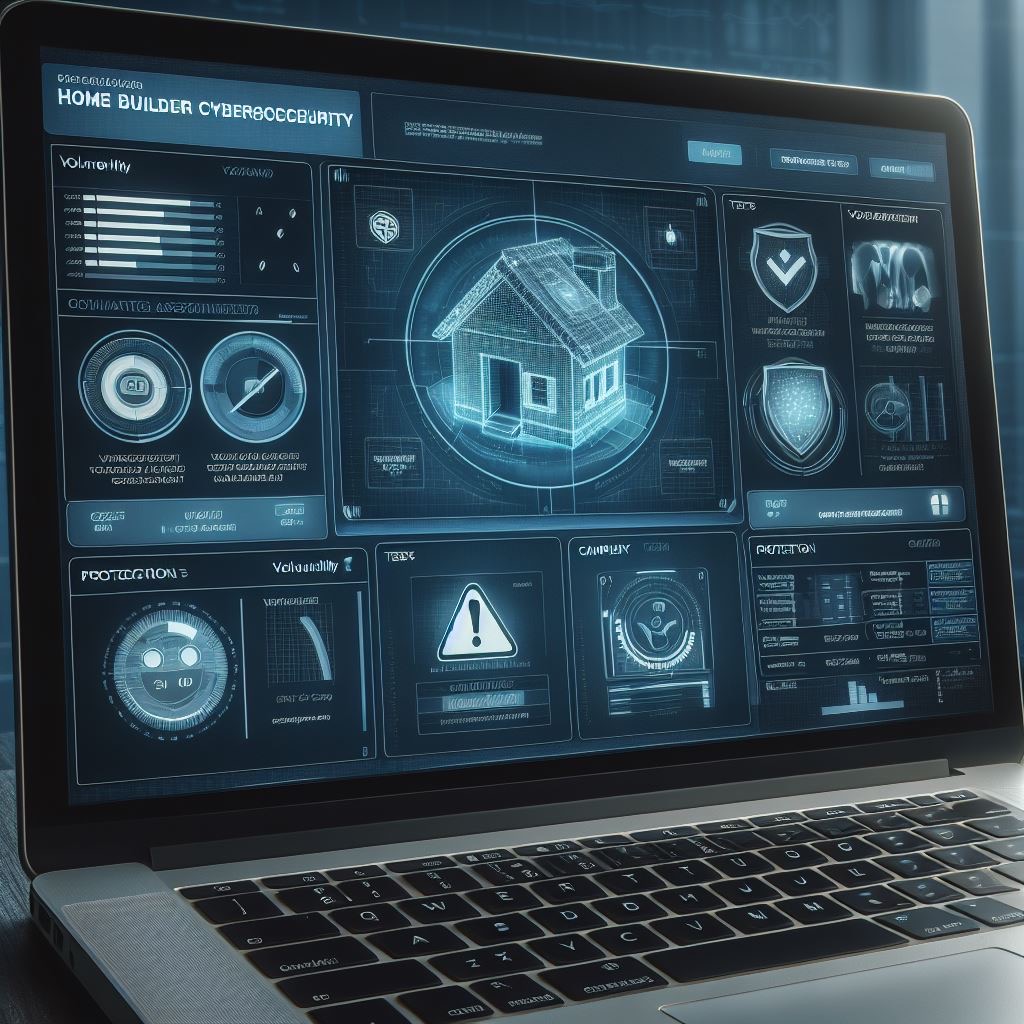
Defying All Odds - Day 16: Safeguarding Financial Transactions in the Construction Industry: Cybersecurity Solutions
“You have to be prepared to fight and finish your own battles.” - Jim Harbaugh
Introduction:
Financial transactions are a critical aspect of the construction industry, and safeguarding them from cyber threats is paramount. In this article, we will explore cybersecurity solutions that construction companies can implement to protect their financial transactions. From secure payment gateways to encrypted communication channels, these solutions will help ensure the integrity and confidentiality of financial transactions. By prioritizing cybersecurity in financial processes, construction companies can mitigate the risk of fraud, unauthorized access, and financial loss.
In our featured story, we talked about how ZATIS helped a construction company defy the odds and win in the battle against hackers and cybercriminals. Join us today as we discuss how the construction industry handles a significant volume of financial transactions, including payments to suppliers, subcontractors, and employees. These transactions involve sensitive financial information that, if compromised, can have severe consequences for both the construction company and its stakeholders. Therefore, it is crucial for construction companies to implement robust cybersecurity solutions to safeguard their financial transactions.
1. Secure Payment Gateways:

One of the primary cybersecurity solutions for protecting financial transactions is the use of secure payment gateways. These gateways encrypt payment information, ensuring that it remains confidential during transmission. By partnering with reputable payment processors and using secure payment gateways, construction companies can minimize the risk of payment fraud and unauthorized access to financial data.
2. Two-Factor Authentication (2FA):

Implementing two-factor authentication adds an extra layer of security to financial transactions. By requiring users to provide a second form of verification, such as a unique code sent to their mobile device, construction companies can prevent unauthorized access to financial accounts and ensure that only authorized individuals can initiate and approve transactions.
3. Encryption of Communication Channels:

To protect the confidentiality of financial information, construction companies should encrypt communication channels used for financial transactions. This includes email communications, file transfers, and other forms of data exchange. Encryption ensures that even if intercepted, the information remains unreadable to unauthorized individuals.
4. Regular Software Updates and Patching:

Keeping software and systems up to date with the latest security patches is essential for protecting financial transactions. Outdated software may have vulnerabilities that can be exploited by cybercriminals. By regularly applying updates and patches, construction companies can mitigate the risk of cyber attacks and ensure the security of financial transactions.
5. Employee Training and Awareness:

Employees play a crucial role in safeguarding financial transactions. Construction companies should provide comprehensive cybersecurity training to employees, educating them about the risks associated with financial transactions and the best practices for secure handling of financial information. Regularly updating employees on emerging threats and reinforcing cybersecurity protocols will help create a culture of security within the organization.
By implementing these cybersecurity solutions, construction companies can safeguard their financial transactions and protect themselves from potential financial loss and reputational damage. It is important to regularly assess and update cybersecurity measures to adapt to evolving threats and maintain a strong cybersecurity posture.
In the next article, we will delve into the topic of secure remote work in the construction industry. We will explore the best practices for maintaining a secure remote work environment and discuss the technologies and strategies that can help construction companies ensure the confidentiality and integrity of their data.

The Importance of Proactive Cybersecurity Measures
To mitigate the risks associated with cyber threats, construction companies must adopt a proactive approach to cybersecurity. Implementing robust cybersecurity measures can help protect the company's assets, maintain client trust, and ensure the smooth operation of projects. Here are some key steps that construction companies can take:
1. Employee Education and Training:

Employees are often the first line of defense against cyber threats. Providing comprehensive training on cybersecurity best practices, such as identifying phishing emails and using strong passwords, can significantly reduce the risk of successful attacks.
2. Regular Security Assessments:

Conducting regular security assessments, including vulnerability scanning and penetration testing, can identify potential weaknesses in the company's systems and infrastructure. This allows for timely remediation before cybercriminals can exploit these vulnerabilities.
3. Secure Network Infrastructure:

Implementing robust firewalls, intrusion detection systems, and encryption protocols can help safeguard the company's network infrastructure from unauthorized access and data breaches.
4. Access Control and Authentication:

Implementing strong access control measures, such as multi-factor authentication and role-based access controls, can ensure that only authorized individuals have access to sensitive information.
5. Data Backup and Recovery:

Regularly backing up critical data and implementing a robust disaster recovery plan can help minimize the impact of a cyber-attack and facilitate the restoration of operations.
Conclusion:
In an increasingly digitized world, the construction industry must recognize the importance of cybersecurity and take proactive measures to protect its valuable assets. Neglecting cybersecurity can have severe consequences, including financial losses, reputational damage, project delays, legal and regulatory compliance issues, and loss of intellectual property. By prioritizing cybersecurity and implementing robust measures, construction companies can safeguard their operations, maintain client trust, and ensure their long-term success in an evolving digital landscape.
Want to know if your construction company is at major risk of getting hacked? Click here for a FREE 15-Minute Cyber Consult.

5 Reasons Your Construction Company Needs a Cybersecurity Risk Assessment. 👊
It is important for construction companies to conduct a cybersecurity risk assessment for several reasons:
1. Protection of sensitive data:
Construction companies handle a vast amount of sensitive data, including financial information, project details, client information, and employee records. Conducting a cybersecurity risk assessment helps identify potential vulnerabilities and ensures appropriate safeguards are in place to protect this data from unauthorized access, data breaches, or theft.
2. Mitigating financial losses:
Cyberattacks can result in significant financial losses for construction companies. These losses can stem from data breaches, ransomware attacks, or the disruption of critical systems. By conducting a cybersecurity risk assessment, companies can identify potential weaknesses in their IT infrastructure and take proactive measures to mitigate the financial risks associated with cyber threats.
3. Maintaining business continuity:
A successful cyber-attack can disrupt construction projects, delay timelines, and impact the overall business operations. By conducting a risk assessment, construction companies can identify potential vulnerabilities and implement robust cybersecurity measures to ensure business continuity. This includes having backup systems, disaster recovery plans, and incident response protocols in place.
4. Protecting reputation and client trust:
Construction companies rely on their reputation and client trust to secure new projects and contracts. A cybersecurity breach can undermine trust, damage the company's reputation, and lead to the loss of clients. By conducting a risk assessment and implementing appropriate cybersecurity measures, construction companies can demonstrate their commitment to protecting client data and maintaining a secure operating environment.
5. Compliance with regulations:
Construction companies may be subject to industry-specific regulations and legal requirements regarding data protection and cybersecurity. Conducting a risk assessment helps identify any gaps in compliance and ensures that the company meets the necessary regulatory obligations.
Overall, conducting a cybersecurity risk assessment allows construction companies to proactively identify and address potential vulnerabilities, protect sensitive data, mitigate financial losses, maintain business continuity, protect their reputation, and comply with relevant regulations.
Other resources to help you get started with Cybersecurity
Start your own Cybersecurity initiative:
Here is a quick checklist to get you started with your Cybersecurity initiative. Remember imperfect action beats inaction, get started and keep pushing for progress and awareness with your people.
Update your software
Secure your files
Require passwords
Encrypt devices
Use multi-factor authentication
Protect your wireless network
Make "SMART SECURITY" your business as usual
Require strong passwords
Train all staff
Have a plan
